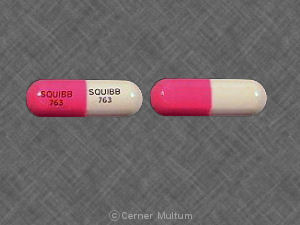Sumycin Tablets Dosage
Generic name: TETRACYCLINE HYDROCHLORIDE 250 mg
Dosage form: tablet, film coated
Drug class: Tetracyclines
Medically reviewed by Drugs.com. Last updated on Jul 31, 2025.
Adults: Usual daily dose, 1 gram as 500 mg twice a day or 250 mg four times a day. Higher doses such as 500 mg four times a day may be required for severe infections or for those infections which do not respond to the smaller doses.
For pediatric patients above eight years of age: Usual daily dose, 10 mg/lb to 20 mg/lb (25 mg/kg to 50 mg/kg) body weight divided in four equal doses.
Administration of adequate amounts of fluid with the tablet formulation of tetracycline is recommended to wash down the drug and reduce the risk of esophageal irritation and ulceration (see ADVERSE REACTIONS).
Absorption of tetracycline is impaired by antacids containing aluminum, calcium or magnesium and preparations containing iron, zinc or sodium bicarbonate. Food and some dairy products also interfere with absorption.
When used in streptococcal infections, therapy should be continued for 10 days.
For treatment of brucellosis, 500 mg tetracycline hydrochloride tablets four times a day for three weeks accompanied by streptomycin, 1 gram intramuscularly twice daily the first week and once daily the second week.
For the treatment of syphilis in patients allergic to penicillin, the following dosage of tetracycline hydrochloride tablets is recommended: early syphilis (less than one year’s duration), 500 mg four times a day for 15 days. Syphilis of more than one year’s duration (except neurosyphilis), 500 mg four times a day for 30 days.
For treatment of gonorrhea, the recommended dose is 500 mg by mouth four times a day for seven days.
Uncomplicated urethral, endocervical or rectal infections in adults caused by Chlamydiatrachomatis: 500 mg, by mouth, four times a day for at least seven days.
In cases of moderate to severe acne which, in the judgement of the clinician, require long-term treatment, the recommended initial dosage is 1 gram daily in divided doses. When improvement is noted, reduce dosage gradually to maintenance levels ranging from 125 mg to 500 mg daily. In some patients it may be possible to maintain adequate remission of lesions with alternate day or intermittent therapy. Tetracycline hydrochloride tablets therapy of acne should augment the other standard measures known to be of value. Duration of long-term treatment which can safely be recommended has not been established (see WARNINGS and Carcinogenesis, Mutagenesis, Impairment of Fertility).
Frequently asked questions
- What are the best antibiotics for pneumonia?
- What are the best antibiotics for boils?
- What causes black hairy tongue?
- How long do antibiotics take to work?
More about Sumycin (tetracycline)
- Check interactions
- Compare alternatives
- Drug images
- Side effects
- During pregnancy
- Drug class: tetracyclines
- Breastfeeding
Patient resources
Other brands
Ala-Tet, Brodspec, Actisite, Panmycin, ... +2 more
Professional resources
Other brands
Related treatment guides
See also:
Further information
Always consult your healthcare provider to ensure the information displayed on this page applies to your personal circumstances.


